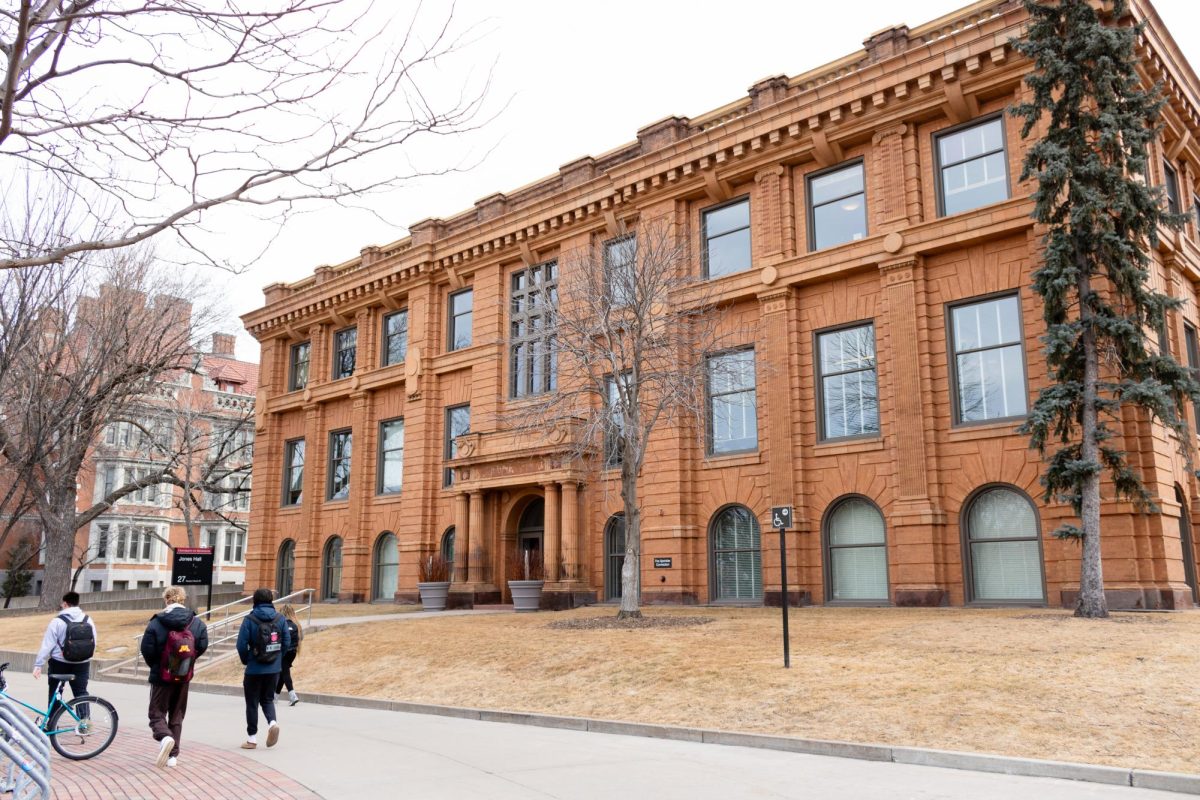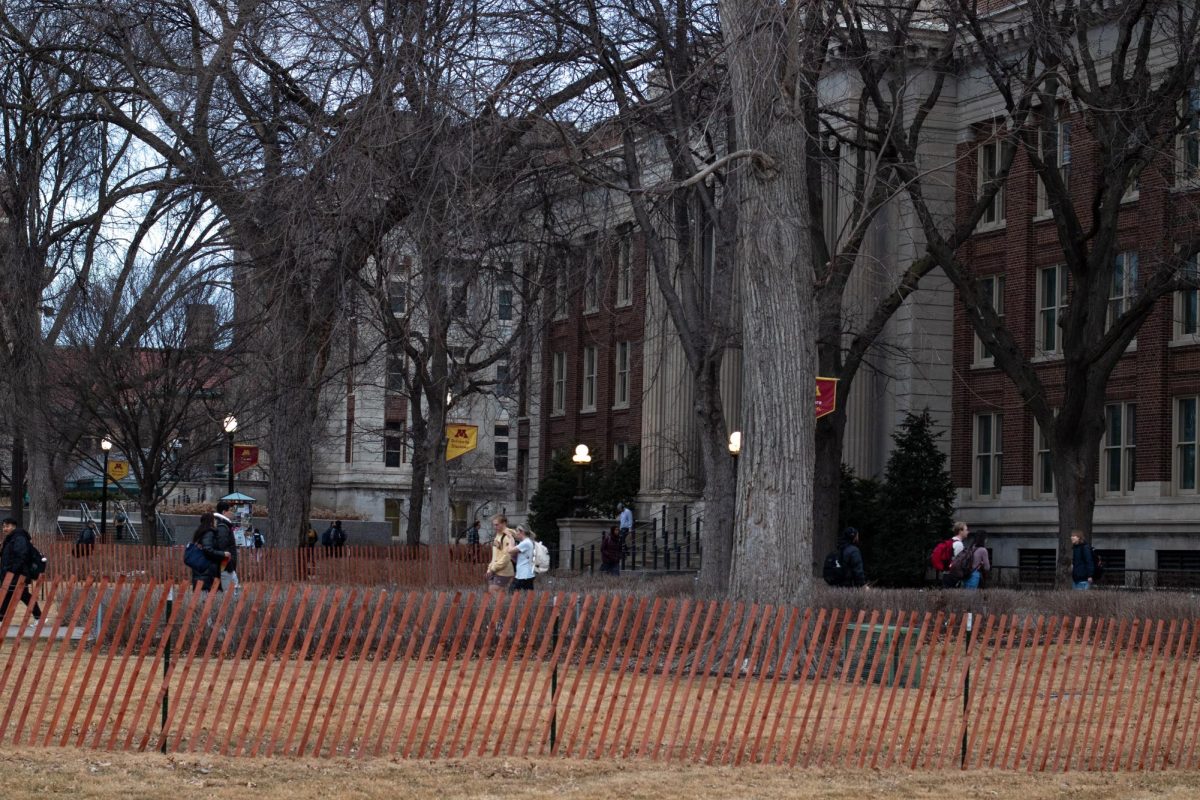The University of Minnesota Board of Regents discussed findings from the recently concluded campus safety review and confirmed several systemwide strategic plan measures, among them a tuition-free program for low-income families, in a virtual meeting Friday.
The board also approved a policy that will allow the University to enter licensing and sponsorship agreements with alcoholic beverage companies.
The next board meeting will be Mar. 10-12.
Systemwide strategic plan measures
The board approved a set of new measures as part of the University’s systemwide strategic plan, which outlines the University’s major goals and priorities for the next five years.
The measures approved Friday include benchmarks that will assess the strategic plan’s effectiveness, such as improving graduation and retention rates for students of color and improving the ranking of the Medical School.
Some of these measures will be put on an online dashboard that will allow individuals to view the goals and the University’s progress in implementing them, President Joan Gabel said at the meeting.
One of the approved measures states that the University will create a tuition-free program for students whose families earn less than $50,000 a year.
This program will apply to students from low-income families across all five system campuses, many of whom are also supported by need-based scholarships and grants. The program will fund the portion of a student’s tuition not covered by other scholarships or financial aid, Gabel said.
Although this measure was not discussed at the meeting, all of the goals were approved unanimously by the board.
It is likely the approved measures will be revised or added to in the future, Gabel said at the meeting.
“It would not only be normal, but a positive, if we end up editing, on occasion, what we have here in order to dive deeper and clarify as data becomes available or as circumstances and times suggest,” Gabel said.
Many regents said they were pleased that progress on the President’s Impact 2025 Systemwide Strategic Plan has continued amid the COVID-19 pandemic.
“I think we’re doing something new. I think this will make us into something that we’ve not been and create a lot of new things,” regent Ilean Her said at the meeting.
Alcohol sales policy
In a 7-5 vote, the board approved a new policy that will allow University logos and trademarks, excluding mascots, to appear on alcoholic beverages. The policy change has the potential to earn the Athletics Department up to $300,000 a year.
Some regents, and student representative to the board Rodrigo Tojo Garcia, expressed concern that the policy would promote drinking among students, as many undergraduates are under the legal drinking age.
“This policy could open the door to allowing alcohol advertising directly in University buildings meant for academic research or housing,” Tojo Garcia said at the meeting.
Regents Michael Hsu, Darrin Rosha and Mike Kenyanya expressed similar concerns.
The Minnesota Student Association (MSA) Sexual Assault Task Force also expressed concerns about the potential for an increase in sexual violence on campus and health consequences as a result of alcohol consumption. MSA urged the board to vote against the policy change in a statement submitted to the board last Tuesday.
“This work could undermine a lot of the important work being done to combat sexual violence on campus,” Lucie Allen, chairperson of the Sexual Assult Task Force, said at the forum meeting. “There’s a really strong correlation between hazardous drinking and perpetrating sexual assault.”
The approved policy indicates that a specific amount of the revenue from the alcohol sales will be allocated to the University’s education and counseling programs.
Campus safety review
Board members discussed the results of the recently concluded safety review of the University of Minnesota Police Department (UMPD) with Gabel and Dr. Cedric Alexander, the leader of the review.
Throughout the presentation, Alexander maintained that UMPD operates successfully as a police force. He also said the “undeniable tension” between those calling for less police presence and those calling for additional police presence on campus is occurring across the country.
Alexander stated that the Minneapolis Police Department killing of George Floyd last summer had a clear effect on student, faculty and staff feelings of safety on campus.
“George Floyd was the tipping point in this country that pushed us all back on our heels and made us recognize and see what it is that we can do differently around police reform,” he said at the meeting.
The report also identified that a greater level of transparency on UMPD’s operations and actions may be necessary. Some may have trouble differentiating UMPD from MPD, leading to greater mistrust of campus police, Alexander said.
“Nothing builds relationships greater and faster between police and the community than transparency,” he said at the meeting. “When people understand what their police department is doing, why they’re doing it, how they’re doing it, it creates an openness where people feel their public safety isn’t being provided by some clandestine operation.”
Sonja Kleven contributed to this report.


















